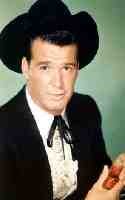There are also illegal, unethical and undemocratic ways to suppress votes for your opponent, such as making it difficult for certain groups of citizens to register to vote, throwing out existing valid voter registrations and making it difficult for voters to cast their ballots on election day. Democrats in recent years have often accused Republicans of trying to suppress the turnout among minority and poor voters – groups likely to vote Democratic.
But this year the Republicans seem to be trying to suppress the votes of disabled veterans. Susan Bysiewicz, the secretary of state for Connecticut, wrote about this in a recent op ed in the New York Times.
On May 5, the department led by James B. Peake issued a directive that bans nonpartisan voter registration drives at federally financed nursing homes, rehabilitation centers and shelters for homeless veterans. As a result, too many of our most patriotic American citizens — our injured and ill military veterans — may not be able to vote this November.I have witnessed the enforcement of this policy. On June 30, I visited the Veterans Affairs Hospital in West Haven, Conn., to distribute information on the state’s new voting machines and to register veterans to vote. I was not allowed inside the hospital.
Don’t veterans vote Republican? As Bob Dylan said, “The times there are a-changing.” According to the Las Vegas Sun when John McCain spoke to disabled veterans Saturday in Las Vegas he received a tepid reception:
Just one of 14 veterans interviewed by the Sun after his speech said he is a certain McCain voter, and the nonpartisan group’s legislative director expressed concerns about McCain’s proposed “Veterans’ Care Access Card.”Being sent on multiple tours of Iraq and Afghanistan and coming home to find that the politicians who were so eager to send you into combat are reluctant to appropriate money to treat the physical and mental injuries that resulted apparently is enough of a shock to change someone’s political orientation. What will it take for farmers in Kansas to see which politicians and which political philosophies are truly in their best interests?



No comments:
Post a Comment